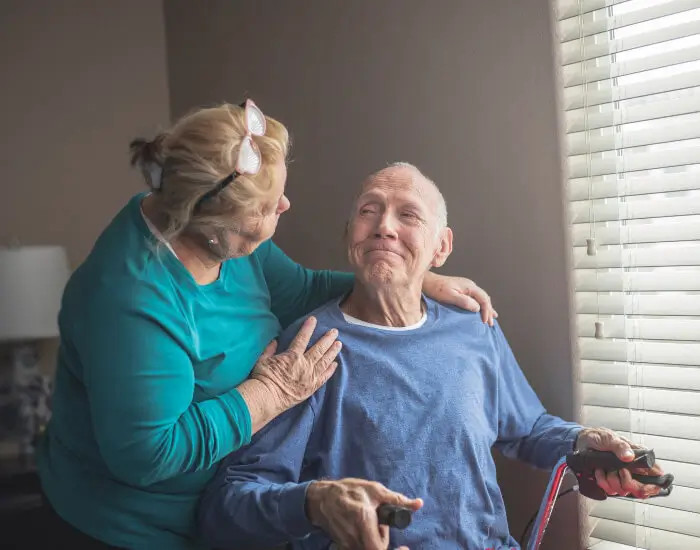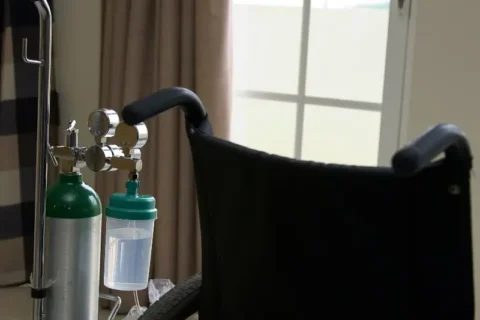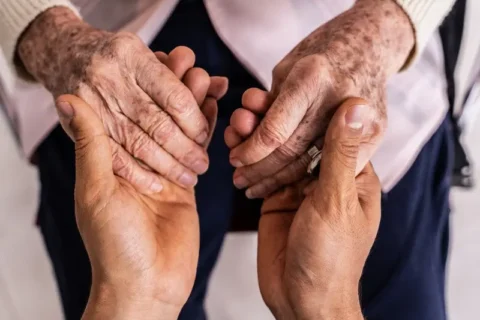10 Things You Need to Know About Hospice Care
Hospice care is a unique concept, providing a set of specialty services for patients near the end of life, as well as their families. It is often misunderstood, and patients and their families may not know they can request hospice as early as they can. In fact, many family members express that they wish they had known to call sooner. So, what is hospice care? Hospice involves individualized care plans created specifically for the patient, to help manage symptoms and pain, improve quality of life, and encourage patients and their families to spend meaningful time together. It is the transition away from curative treatments, and addresses not only physical needs, but also emotional and spiritual needs. This can be beneficial to both the patient and the family members, but people often do not understand how it works. Whether you are a patient, a family caregiver, or a clinician unfamiliar with hospice care, it’s important to know some key facts about it, in order to make good decisions about whether or not hospice care is appropriate.
- Hospice is not a place. Most hospice patients receive care at home, whether that’s a private residence, an assisted living facility, or anywhere else the patient lives. Patients in hospice care are surrounded by the people and things they love, and the care team comes to them, bringing all the supplies necessary for their care, including medication and equipment. In some cases, hospice care is provided in inpatient centers, when symptoms cannot be controlled in a home setting.
- Hospice is not cost-prohibitive. In fact, most hospice patients have no out-of-pocket expenses. Hospice is covered by Medicare, Medicaid, and private insurance, often up to 100 percent. This varies between providers and states, so check to find out the details for your unique situation.
- Hospice is not just for cancer patients. People are eligible for hospice once they have decided not to pursue further curative treatments for their illness, whatever that illness may be. Any patient with a life-limiting illness can choose to seek hospice care for comfort, symptom management, and a higher quality of life.
- Hospice does not mean you can’t seek medical treatment. The focus of your medical treatment shifts to creating a higher quality of life rather than curing your illness, but you can still see your regular doctor and make your own medical decisions. The hospice team will offer therapies to help you manage your symptoms so that you will be more comfortable.
- With hospice, you are in control. The end of your life is your personal experience, and the hospice team respects that. Your care plan will be built around the things that are important to you and the care you wish to receive, the way you want to receive it.
- Hospice is not just for a set length of time. Patients are eligible for hospice when they have a life expectancy of six months or less, should the disease follow the expected course. However, some patients live longer than expected, once the pain relief provided by hospice helps them to feel stronger. When this happens, the time frame is adjusted.
- You can change your mind about hospice. If you change your mind about hospice care and decide to seek aggressive medical treatment, you can opt out. If you don’t feel hospice is the right choice for you, you can opt out. You can also opt back in at any time, as long as you are still eligible for hospice care.
- Family caregivers are an important part of the hospice team. In fact, family and friends provide much of the care for a loved one in hospice, with support and training from the hospice team of medical professionals. If a patient lives in an assisted living community, the hospice team works with the staff at the facility.
- Hospice care is multi-faceted. Patients receive medical care from registered nurses trained in symptom management and pain control, have personal needs met by certified nursing assistances, and have their care managed by a physician. They are provided with emotional support from social workers, spiritual care from clergy, and companionship from volunteers. Hospice care seeks to improve quality of life by treating the whole person, not just physical symptoms.
- Hospice care provides family support. During treatment, hospice helps family members deal with the stress of a loved one’s illness. After a patient’s death, hospice offers grief support for up to 13 months, offering care from highly trained grief specialists.

For thoughtful, compassionate end of life care, contact Agape Hospice & Palliative Care. At Agape, our name reflects our philosophy. Agape is a Greek word meaning love, and this is what we offer to our patients and families, improving their quality of life so that patients can live the remainder of their lives to the fullest. We see our patients as a gift, and we are grateful for all they have achieved throughout their lives. That’s why we show that gratitude through compassionate skilled medical care, addressing not just the physical needs of our patients, but also their psychological, emotional, and spiritual needs as well. We are accredited by The Joint Commission, nationally recognized as the gold standard in health care, and we have met the organization’s enhanced requirements for patient safety and quality of care. Agape’s interdisciplinary team is made up of a number of accredited medical professionals, all working together to care for our patients and their families. We offer free nursing services, therapy pet visits, home health aides, pain control, physical therapy, speech therapy, and social services, as well as inpatient care, respite care for caregivers, bereavement support, and volunteer assistance. We want our patients and their families to know that they are not alone in this transition. If you would like more information about our services, call us at 213-234-5535 or contact us through our website.


